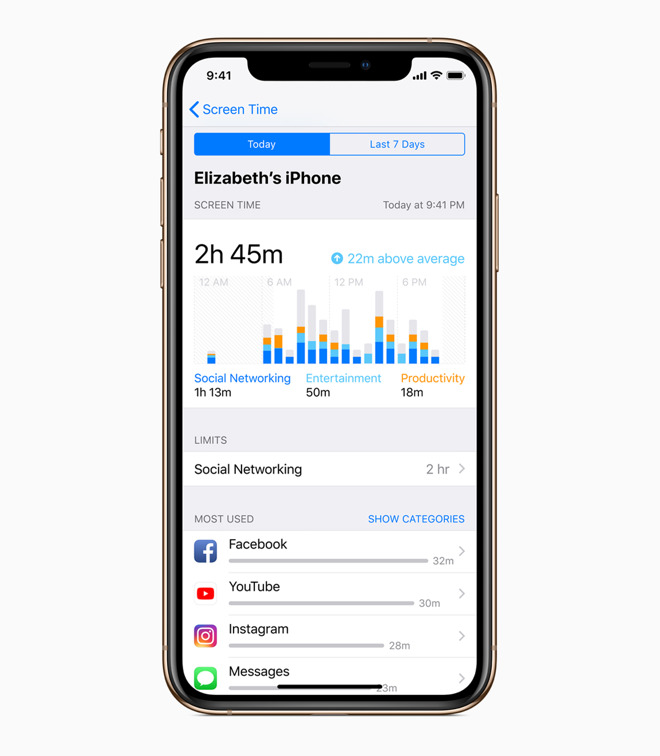Apple's Greg Joswiak argues most people will keep iOS 12's Screen Time on, change behavior...
Screen Time, one of the key additions in iOS 12, is meant to give people access to data that can influence their behavior without imposing hard limits, Apple marketing VP Greg Joswiak said in a recent podcast interview.

"If you ask people how much they're using their devices, they can only guess," Greg Joswiak told Arianna Huffington on "The Thrive Global Podcast."
"If you ask them how much they're using a particular app or category of app, they can only guess," he continued. "I almost guarantee you their guesses are wrong. So what we wanted to do was provide people with the real information about how much they're using devices, apps, categories of apps, and how many notifications they're getting. These things are very measurable."
The executive said he believes most people will turn Screen Time on, and control how they use iPhones and iPads as a result.
"For me, I couldn't imagine leaving my home in the morning without my iPhone. I think like most people," Joswiak commented. "I still found it fascinating to be able to open up the Screen Time app and see where I was spending my time... That information was useful for me to regulate myself to the behavior that I want. I didn't need limits, I just needed that information."
One of the features of Screen Time is the ability for parents to monitor their children and impose restrictions, but Joswiak suggested that parents will be able to have an "intelligent conversation" about usage before resorting to harsh rules.
Screen Time should continue to evolve in future updates. "We know there's lots more we'll want to do over time," Joswiak hinted.

"If you ask people how much they're using their devices, they can only guess," Greg Joswiak told Arianna Huffington on "The Thrive Global Podcast."
"If you ask them how much they're using a particular app or category of app, they can only guess," he continued. "I almost guarantee you their guesses are wrong. So what we wanted to do was provide people with the real information about how much they're using devices, apps, categories of apps, and how many notifications they're getting. These things are very measurable."
The executive said he believes most people will turn Screen Time on, and control how they use iPhones and iPads as a result.
"For me, I couldn't imagine leaving my home in the morning without my iPhone. I think like most people," Joswiak commented. "I still found it fascinating to be able to open up the Screen Time app and see where I was spending my time... That information was useful for me to regulate myself to the behavior that I want. I didn't need limits, I just needed that information."
One of the features of Screen Time is the ability for parents to monitor their children and impose restrictions, but Joswiak suggested that parents will be able to have an "intelligent conversation" about usage before resorting to harsh rules.
Screen Time should continue to evolve in future updates. "We know there's lots more we'll want to do over time," Joswiak hinted.




Comments
This is what critics of mobile tech have been complaining about and asking for. Hopefully we won't see the axe grinders now complaining about having the data, roll eyes...
I disabled it. If I want a babysitter - I'll hire one.
I will never use, or even ever look at Screen Time.
ScreenTime is helping me be more conscious of my effort to lower my FB usage, and it is helping. I'll know I've really made best use of ScreenTime on the great and glorious day it tells me that my most-used app is the Activity app.
I definitely think this is a good thing, as there should be a way for people to get that info, but I don’t think it’s gonna change many people’s habits.
Just like activity rings, fitness trackers, calorie counters, and game achievements, relevant information provided in an intuitive fashion can indeed change behavior. I don’t see how Screen Time won’t assist some people in making better decisions for themselves. Information can assist in self control. And at the very least, it’s a fun treasure trove for stats geeks.
Same for Face ID for Apple Pay.